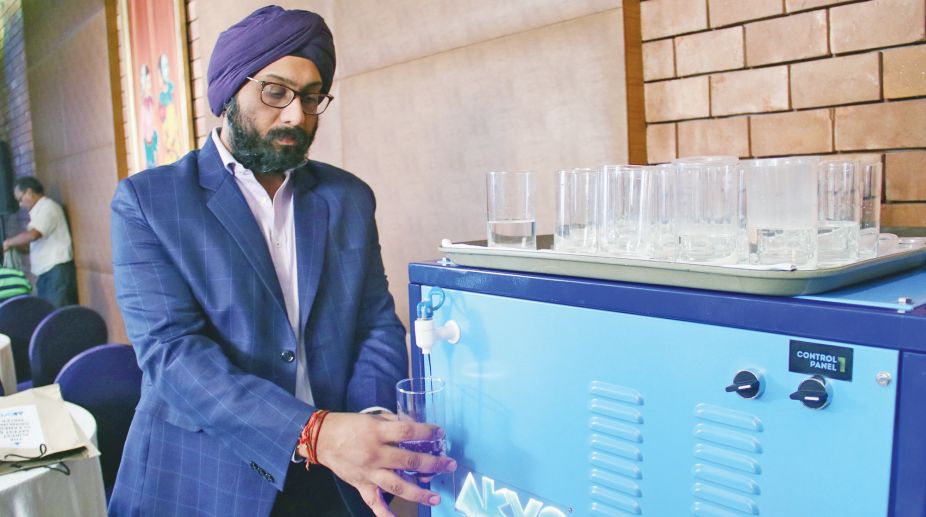Gallbladder cancer in 12 people for every one lakh population in India
Dr. Ajay Sharma, head of the Department of Gastro Surgery, said if a lump is found in the gallbladder, it should be treated immediately.
Akvo, an atmospheric water generator system, is one of the perfect alternatives to combat the crisis of scarcity.

Navkaran Singh Bagga
With the increasing rate of different kinds of environmental pollution, availability of fresh water has now become a distant dream. More than half the population in India have poor or no access to safe drinking water.
Women still have to cover miles just for a pitcher of water. Groundwater depletion in the country has been declared a national crisis. The rapid shrinking of water resources has become such a dire issue that it is often envisaged that it might trigger World War 3.
Advertisement
Driven by this pressing issue, entrepreneur Navkaran Singh Bagga is working on establishing Akvo, an atmospheric water generator system. The technology replicates the natural process of condensation by simulating a dew point, which allows it to make water continuously, even in low humidity conditions.
Advertisement
Unlike purifiers or RO filtration systems, the appliance doesn’t require any water source. It has an attached filter, which continuously sucks in air and converts it into moisture which further goes through a five stage filtration process and comes out completely distilled.
“Inspired by the idea that the entire world is now looking up to renewable energy resources, we started talking about building something sustainable. Slowly and steadily a water crisis is so much on the rise that it will become the oil of future.
That is when we came across this fantastic technology and had a research team going about generating water from humidity. Experts from the fields of water, mechanical engineering and refrigeration among others were involved,” said Bagga.
He claims that a sizeable demand for the appliance is created in the corporate sector, considering the necessity of safe drinking water for employees. Five machines will be installed in the premises of Indian Oil, Haldia. Interest has also been shown by the Meghalaya government.
“People’s interest with the machine is evident from the lot of queries that we are getting every day through our website. They want to know if we will come out with a domestic machine. Our initial focus is the public sectors because if there the appliance can provide larger volumes of water it will start getting adopted in the infrastructural perspective,” said Bagga.
The machine can provide water as low as 30 litres per day up to 1,000 litres per day. “With an aim to ramp up the volume, currently we are working on a single machine that can give 10,000 litres of water per day which can cater to the standard water needs for 15 flats,” he said. A 30 litre machine is priced around Rs 60,000. “Our long term transition plan is to bring it down to Rs 35,000 so that it is accessible to common men,” said Bagga.
According to him, the appliance will best respond in places with high humidity like West Bengal or the coastal areas like Mumbai and Goa. The device will have an especially high relevance in places like Chennai where the municipal water does not reach all homes. Many people have to depend on buying tankers for water.
He believes that over time there will be a major transition to this technology as it is one of the perfect alternative sources. It will have the ability to meet the water needs for a large number of people and thus combat a major crisis.
Advertisement